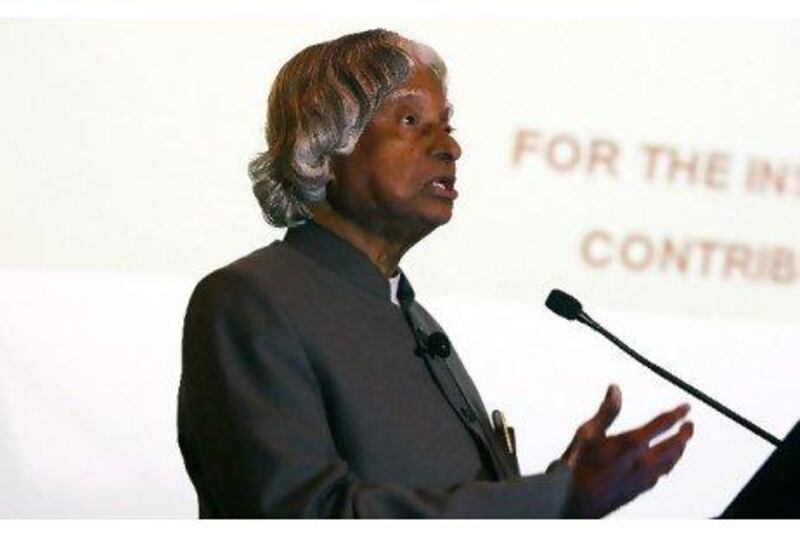DUBAI // The UAE must tap into its huge potential for renewable energy, says the former President of India.
Speaking yesterday at an Emirates Environment Group lecture in Dubai, India's 11th president Dr APJ Abdul Kalam said alternative energy sources such as nuclear, solar and algae-based fuel need to be harnessed to protect the environment for future generations.
"The founder of the UAE had a great vision for this country and transformed it ... based on oil," said Dr Kalam. "But he also understood the importance of a healthy planet and wanted this country to become an example to the world in terms of the environment."
Energy independence is vital, he said, not just for the UAE but for the whole planet. "Fossil fuels like oil, gas and coal are finite and they will run out, so we must all look at moving away from our dependence on them," said Dr Kalam.
He conceded that green technology needs to be more efficient and that storage systems must be developed, but said the UAE's deserts would be ideal for solar panel grids.
In the longer term, he added, "the future, for me, is space-based solar panels. These would be able to collect the sun's rays 24 hours a day and then send that back down to Earth." However, the cost of solar power stations in orbit is currently too high, Dr Kalam said.
But algae oil, which he said can produce more fuel than crop-based oils, could be farmed on coastal areas or in marshes.
He called for an increase of investment in greener technologies and said nuclear power is also a viable alternative to fossil fuels. Safety standards within that industry have improved dramatically, he said,
Also, cars and public transport should switch to hybrid solar and bio-fuel vehicles. "This way the solar power will operate during the day and bio-fuel at night," he said.
Speaking after the lecture, EEG chairman Habiba al Marashi said Dr Kalam's plan was ambitious but "we want to set the bar high".
"It was a wonderful lecture and spoken from the heart with a lot of ideas. We have professionals from many different backgrounds who attend our lectures. Our aim is to inspire them to ... look into how to apply what they learn here for their businesses," she added.





